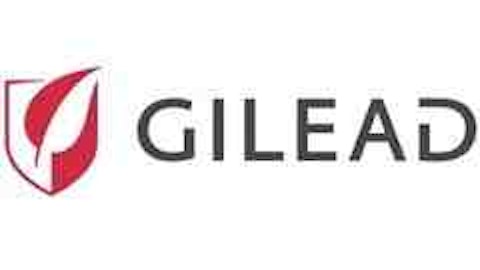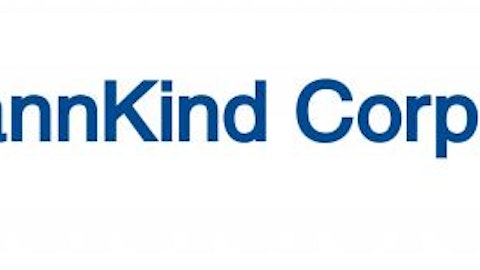Technological advances have allowed for people to have more longevity. Drug companies research and develop medicines to prevent, control and cure diseases. Diabetes is a condition in which the levels of glucose increase above normal levels. This condition can be fatal if the glucose levels are not controlled. Eli Lilly & Co. (NYSE:LLY) and Sanofi SA (ADR) (NYSE:SNY) are two major players that I believe will bring capital appreciation to their investors.
Increase exposure to the pharmaceutical industry
Eli Lilly & Co. (NYSE:LLY)’s drug portfolio is extensive. The company’s R&D has been very successful over the years, and its presence in developed and emerging markets is huge. The company has developed a chemical entity named “Empagliflozin” to combat diabetes. The drug was submitted for approval in a joint action with Boehringer Ingelheim Pharmaceuticals, Inc. to the Federal Drug Administration (FDA) and to the European Medicine Agency (FMA). The approval of this drug should increase revenues and bring capital growth to investors. In addition “Dulaglutine”, a drug to treat diabetes type 2, showed positive results at its Phase III, and it should be close to submission for FDA and EMA approvals.
The commercialization of these entities will significantly increase the presence of Eli Lilly & Co. (NYSE:LLY) in the diabetes-control pharmacology, and its investors should continue to gain appreciation.
According to the most recent quarterly earnings report, the company had revenues for $5.6 billion for the first quarter of 2013, and a net income of $1.5 billion, or $1.42 per share. The company is expected to have revenues of $20 billion in 2013, and a net income of $3 billion. Lastly, the company’s operating cash flow is still expected to be sufficient to allow capital expenditures of $900 million and pay the company’s dividend.
Sanofi SA (ADR) (NYSE:SNY) has also been putting lots of resources into diabetes treatment. The company launched Lyxumia® in the United Kingdom in early May. The GLP-1 based entity will directly compete with Byetta®, owned by Bristol Myers Squibb Co. (NYSE:BMY) and Victoza® from Novo Nordisk A/S (ADR) (NYSE:NVO). Lyxumia will cost £54.14 for 28 days of treatment, compared to £68.24 for 30 days of treatment with Byetta and £78.48 for 30 days of treatment with Victoza. According to several reports, Sanofi’s Lyxumia could save the United Kingdom’s National Health Service (NHS) £70 million in five years.
According to Anthony Barnett, Emeritus Professor of Medicine in the University of Birmingham, “the combination of basal insulin, which principally targets fasting glucose, with a once-daily prandial GLP-1 agonist is the logical approach to improving glycaemic control.” Sanofi SA (ADR) (NYSE:SNY) also stated that Lyxumia may offer advantages over rival diabetes therapies with regard to hypoglycemia. It claims that the risk of blood sugar episodes was reduced by two-thirds in patients taking Lyxumia.
Meanwhile, in the United States, the FDA has accepted Lyxumia for review. The approval of the drug would be dangerous for Eli Lilly’s interests since its own drug is still in Phase III, and it could be lost by attrition. Sanofi SA (ADR) (NYSE:SNY) has two drugs in the registration process not related to diabetes. Lemtrada is a multiple sclerosis treatment drug that is waiting for approval. Aubagio is also a drug for the treatment of relapsing forms of multiple sclerosis. It was submitted to the EMA for approval.
Another major drug company
Bristol Myers Squibb Co. (NYSE:BMY) is another major drug with worldwide presence. It currently does not have diabetes-related drugs in the registration phase. Bristol-Myers has initiated a partnership with AstraZeneca plc (ADR) (NYSE:AZN) to commercialize Byetta outside of the U.S.
According to its most recent earnings report, the company saw net sales decline by 27% to $3.83 billion due to loss of patents of Avapro®, Avalide®, and Plavix®. Excluding those drugs, net sales grew by 10% compared to the first quarter of 2012. Sales in the U.S. declined 44% to $1.97 billion, resulting in a net income of $609 million, or $0.37 per share, from $1.1 billion, or $0.64 per share on a year-over-year basis.Cash and cash equivalents declined to $1.35 billion for the first quarter of 2013, compared to $1.65 billion for the fourth quarter of 2012. Its net debt position doubled from $1.0 billion to $2.1 billion over the same period due to short-term borrowings of $1.3 billion.
The company’s net sales are declining, and Sanofi SA (ADR) (NYSE:SNY)’s Lyxumia may be dangerous to the interests of Bristol Myers Squibb Co. (NYSE:BMY). Sanofi is offering a cheaper solution and sales of Byetta in Europe might end up below estimations. If Sanofi SA (ADR) (NYSE:SNY) gets the green light in its registration of Lyxumia from the FDA, it could prove catastrophic for the sales of Byetta.
On the positive side, Bristol Myers Squibb Co. (NYSE:BMY) announced encouraging Phase I testing data on the drug Nivolumab, which helps the immune system target cancerous cells by restricting the protein “PD-1”. Investors should continue to track the performance of this drug. If the drug is approved by the FDA in the future, the drug manufacturer should see increasing revenues.
On another front line, the company has partnered with Simcere Pharmaceutical Group (ADR) (NYSE:SCR) to commercialize Orencia® in China. The news is huge because the demand for this drug is strong. The drug is currently available in Europe, Japan, and the United States. Revenues from this drug increased 26% on a year-over-year basis, and the penetration in the Chinese market will improve this metric.
In brief, the sales of Byetta may continue to decline as Sanofi and Eli Lilly offer cheaper solutions. However, the new oncology drug looks promising, and provided that it gets FDA approval, the revenues should increase. Also, the company is entering the Chinese market with Orencia, and its revenues are likely to increase in the interim. For these reasons, Bristol Myers Squibb Co. (NYSE:BMY) may also be included in your growth portfolio.
The Foolish message
Eli Lilly & Co. (NYSE:LLY)’s future may be fruitful when the FDA approves its drug Empagliflozin. Also, the company is developing Dulaglutine which will compete against Byetta and Lyxumia. However, in order for Dulaglutine to be successful, its price has to be comparable to Lyxumia. Sanofi got the approval for its drug Lyxumia to be commercialized in Europe, and according to several sources, it could save up to £70 million to the British national health service. It is pending approval from the FDA. Finally, although Bristol Myers Squibb Co. (NYSE:BMY) saw its revenues decline, the company offers an interesting investment prospectus. The company posted appealing results for its new oncology drug, and the company is initiating the commercialization of Orencia in China. The growth potential for this company is huge.
Overall, I would recommend buying these drug manufacturers in a basket of stocks to gain exposure to the pharmaceutical industry.
Robinson Roacho has no position in any stocks mentioned. The Motley Fool has no position in any of the stocks mentioned. Robinson is a member of The Motley Fool Blog Network — entries represent the personal opinion of the blogger and are not formally edited.
The article The Diabetes Drug War originally appeared on Fool.com is written by Robinson Roacho.
Copyright © 1995 – 2013 The Motley Fool, LLC. All rights reserved. The Motley Fool has a disclosure policy.





